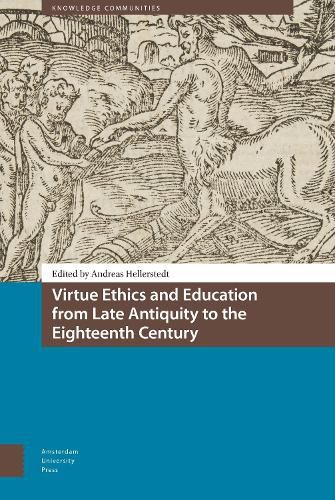Readings Newsletter
Become a Readings Member to make your shopping experience even easier.
Sign in or sign up for free!
You’re not far away from qualifying for FREE standard shipping within Australia
You’ve qualified for FREE standard shipping within Australia
The cart is loading…






This book argues that pre-modern societies were characterized by a common quest for human flourishing or excellence, i.e. virtue. The history of virtue is a particularly fruitful approach when studying pre-modern periods. Systems of moral philosophy and more day-to-day moral ideas and practices in which virtue was central were incredibly important in pre-modern societies within and among diverse scholarly, literary, religious and social communities. Virtue was a cornerstone of pre-modern societies, permeating society in many different ways, and on many different levels, and it was conveyed in erudite and pedagogical texts, ritual, performance and images. The construction of virtues such as wisdom, courage, and justice helped shape identities and communities, but also served to legitimize and reinforce differences pertaining to gender, social hierarchies, and nations. On a more fundamental level, studying the history of virtue helps us understand the guiding principles of historical action. Thus, we believe that the history of virtue is central to understanding these societies, and that the history of virtue, including criticisms of virtue and virtue ethics, tells us important things about how men and women thought and acted in ages past.
$9.00 standard shipping within Australia
FREE standard shipping within Australia for orders over $100.00
Express & International shipping calculated at checkout
This book argues that pre-modern societies were characterized by a common quest for human flourishing or excellence, i.e. virtue. The history of virtue is a particularly fruitful approach when studying pre-modern periods. Systems of moral philosophy and more day-to-day moral ideas and practices in which virtue was central were incredibly important in pre-modern societies within and among diverse scholarly, literary, religious and social communities. Virtue was a cornerstone of pre-modern societies, permeating society in many different ways, and on many different levels, and it was conveyed in erudite and pedagogical texts, ritual, performance and images. The construction of virtues such as wisdom, courage, and justice helped shape identities and communities, but also served to legitimize and reinforce differences pertaining to gender, social hierarchies, and nations. On a more fundamental level, studying the history of virtue helps us understand the guiding principles of historical action. Thus, we believe that the history of virtue is central to understanding these societies, and that the history of virtue, including criticisms of virtue and virtue ethics, tells us important things about how men and women thought and acted in ages past.